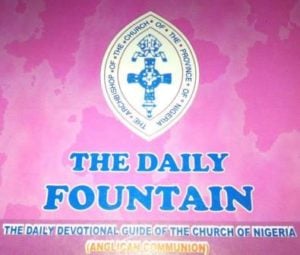Liturgical Readings for : Thursday, 21st March, 2024
Thursday of the Fifth Week in Lent
Memorial may be made of St Enda, abbot
The God of Abraham and Jesus is beyond and outside time and space. Jesus stands before his father to plead on our behalf.
With our Masses we join his and through him we make intercession for our community and world.
FIRST READING
A reading from the book of Genesis 17:3-9
I will make you father of a multitude of nations.
Abram bowed to the ground and God said this to him,
‘Here now is my covenant with you: you shall become the father of a multitude of nations.
You shall no longer be called Abram; Your name shall be Abraham, for I make you father of a multitude of nations.
I will make you most fruitful. I will make you into nations, and your issue shall be kings.
I will establish my Covenant between myself and you, and your descendants after you, generation after generation, a Covenant in perpetuity, to be your God and the God of your descendants after you.
I will give to you and to your descendants after you the land you are living in, the whole land of Canaan, to own in perpetuity, and I will be your God’
God said to Abraham, ‘You on your part shall maintain my Covenant,
yourself and your descendants after you, generation after generation.‘
The Word of the Lord Thanks be to God.
Responsorial Psalm Ps 104
Response The Lord remembers his covenant for ever.
1. Consider the Lord and his strength; constantly seek his face.
Remember the wonders he has done, his miracles, the judgements he spoke. Response
2. O children of Abraham, his servant, O sons of the Jacob he chose.
He, the Lord, is our God: his judgements prevail in all the earth. Response
3. He remembers his covenant for ever, his promise for a thousand generations,
the covenant he made with Abraham, the oath he swore to Isaac. Response
Gospel Acclamation Jn 6: 63. 68
Glory and praise to you, O Christ!
Your words are spirit, Lord, and they are life; you have the message of eternal life.
Glory and praise to you, O Christ!
or Ps 94: 8
Glory and praise to you, O Christ!
Harden not your hearts today, but listen to the voice of the Lord.
Glory and praise to you, O Christ!
GOSPEL
The Lord be with you. And with your spirit
A reading from the holy Gospel according to John 8:51-59 Glory to you, O Lord
Your father Abraham rejoiced to think that he would see my day.
Jesus said to the Jews:
I tell you most solemnly, whoever keeps my word will never see death.‘
The Jews said,
‘Now we know for certain that you are possessed. Abraham is dead, and the prophets are dead, and yet you say, “Whoever keeps my word will never know the taste of death”. Are you greater than our father Abraham, who is dead? The prophets are dead too. Who are you claiming to be?’
Jesus answered:
‘If I were to seek my own glory that would be no glory at all;
my glory is conferred by the Father, by the one of whom you say, “He is our God” although you do not know him. But I know him, and if I were to say:
I do not know him, I should be a liar, as you are liars yourselves. But I do know him, and I faithfully keep his word.
Your father Abraham rejoiced to think that he would see my Day; he saw it and was glad.’
The Jews then said,
‘You are not fifty yet, and you have seen Abraham!’
Jesus replied:
‘I tell you most solemnly, before Abraham ever was, I Am‘.
At this they picked up stones to throw at him but Jesus hid himself and left the Temple.
The Gospel of the Lord Praise to you, Lord Jesus Christ.
Gospel Reflection Thurs, Fifth Week of Lent John 8:51-59
We would all probably acknowledge that we have limited insight into others, and even into ourselves. We certainly have limited insight into God. We would be rightly wary of someone who claimed to know God well. We are suspicious of those who seem too sure of themselves when it comes to God. Yet, in today’s gospel reading, Jesus states very clearly that he knows God. ‘I know him, and if I were to say, ‘I do not know him’, I should be a liar… But I do know him, and I faithfully keep his word’. The opening fourteen verses of this gospel of John is often called the Prologue to the gospel, and the last verse states, ‘No one has ever seen God. It is God the only Son, who is close to the Father’s heart, who has made him known’. Because Jesus has the most intimate relationship with God, close to the Father’s heart, he knows God in the fullest possible way, and, therefore, he can make God known to us. That is why we keep turning to Jesus, because we recognize that he alone can show us the face of God.
In the setting of the last supper in this gospel of John, Philip turns to Jesus and asks him, ‘Show us the Father, and we shall be satisfied’, and Jesus replies, ‘To have seen me is to have seen the Father’. We all have that longing of Philip to see God, to know God, not just with our mind but with our heart. Like Philip we sense that we will never be fully satisfied until we see God, know God, in this deep sense. It was Saint Augustine who said that our hearts are restless until they rest in God. It is only Jesus who can satisfy this restless longing we all have to see and know God. We need to keep turning towards Jesus who comes to us in his Word, in the Sacraments, in the community of believers, so that we can begin to experience in the here and now something of that rest, that resting in God, which is our ultimate destiny.
__________________________________
The Scripture Readings are taken from The Jerusalem Bible, published 1966 by Darton, Longman and Todd Ltd














